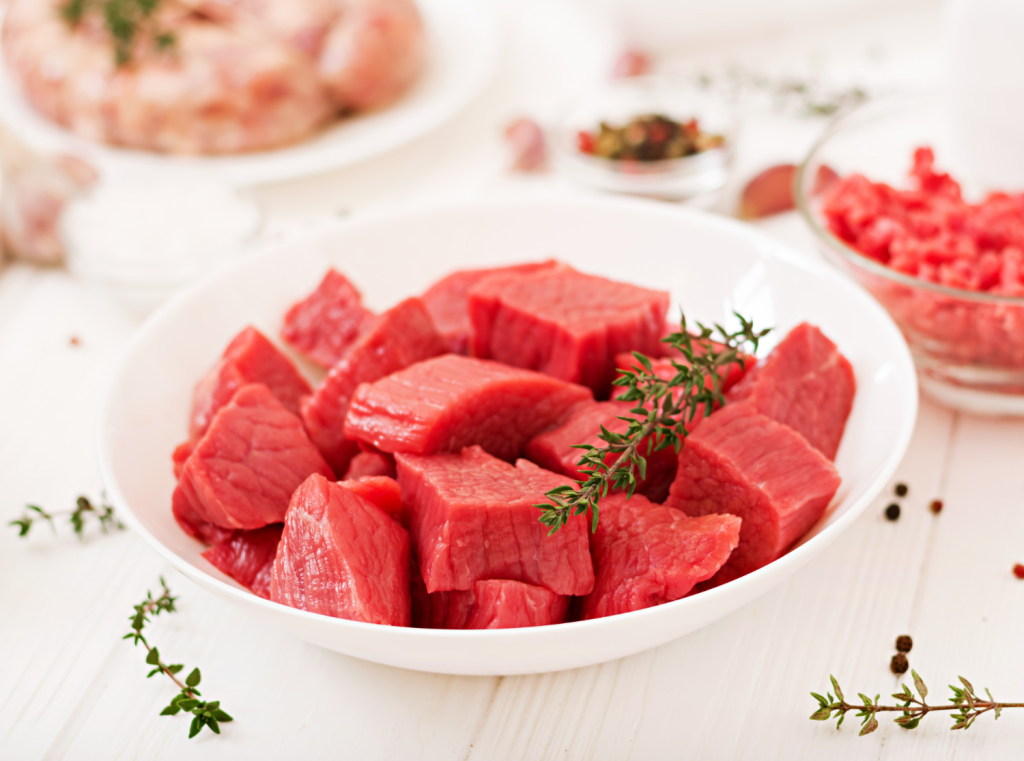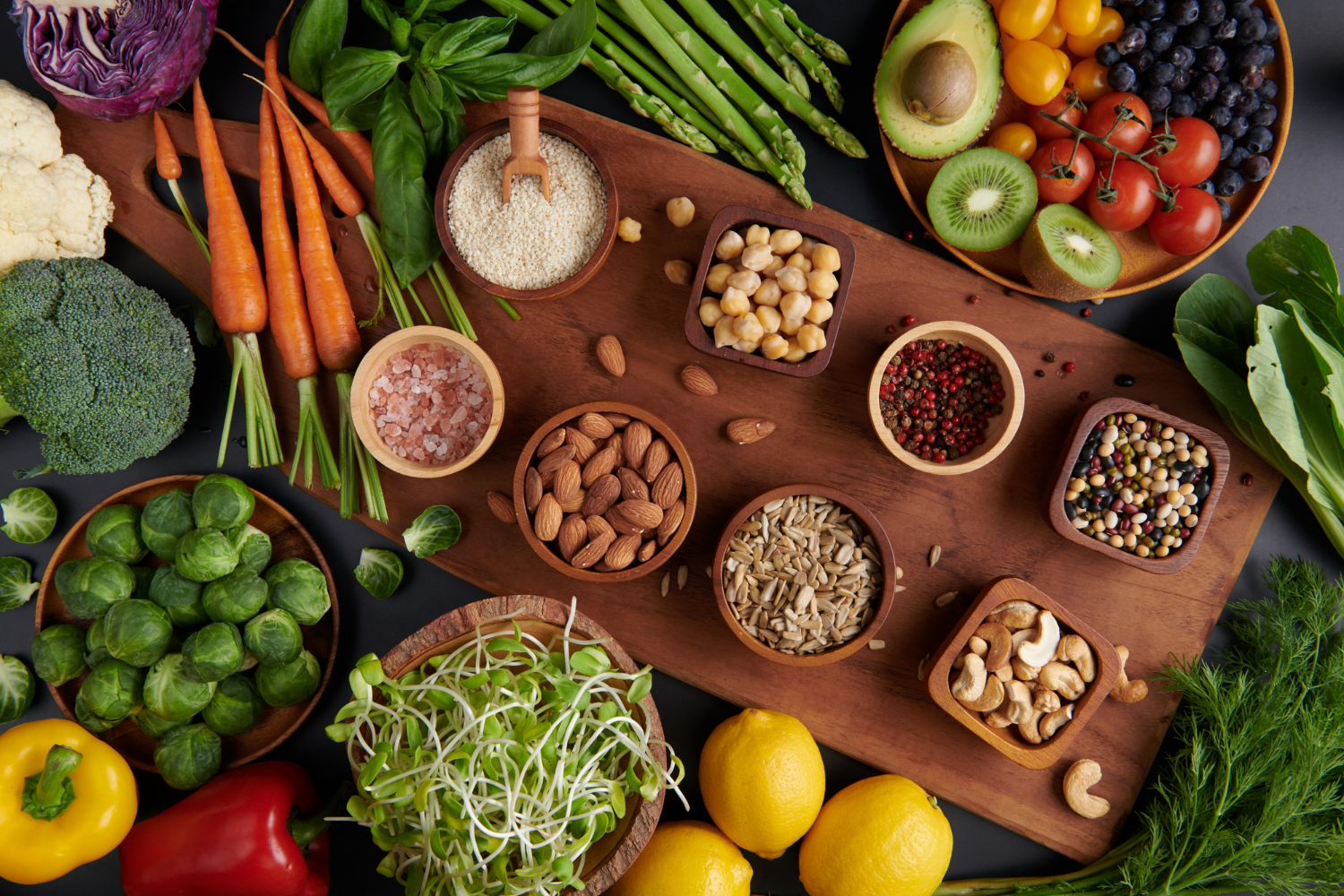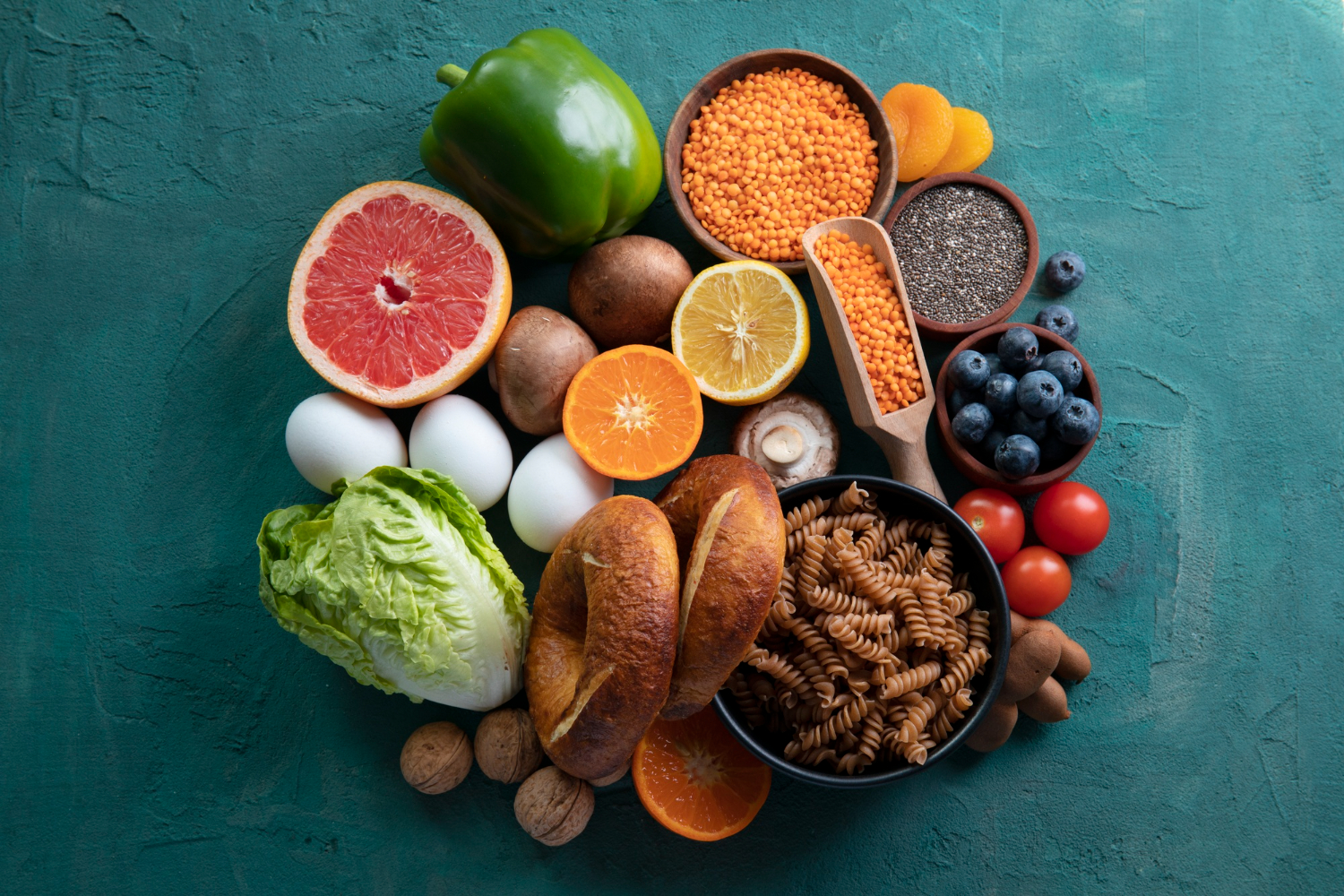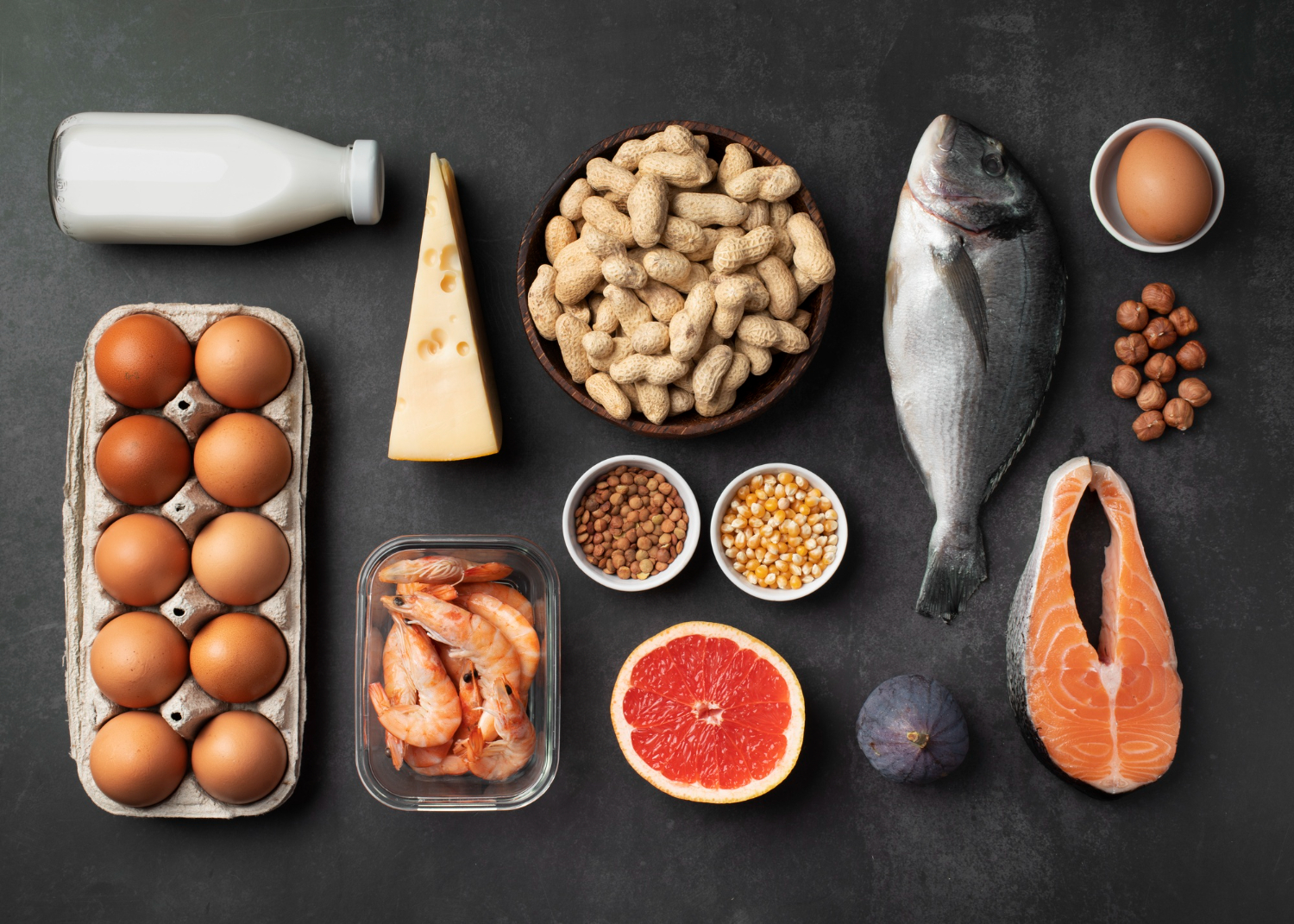Wondering what foods cause inflammation? You’re in the right place.
The foods we eat can either fan the flames of inflammation or help put out the fire. Imagine regaining your energy, reducing pain, and feeling more vibrant simply by making smarter food choices.
Intrigued? Stick with me as we dive into which foods might be causing your inflammation and how you can take control of your diet to lead a healthier, happier life.
How Inflammatory Foods Affect Your Body?

Inflammation is a natural response by your immune system to protect and heal your body from harm. However, when inflammation becomes chronic, it can lead to a host of health issues. Let’s explore how inflammatory foods play a role in this process and how they can impact your body.
The Inflammatory Cascade:
When you consume inflammatory foods, your body recognizes them as a threat, triggering an immune response. This response involves the release of inflammatory molecules like cytokines and prostaglandins. While this is a normal part of healing, a constant influx of these molecules can lead to chronic inflammation.
Joint Pain and Arthritis:
One of the most common effects of chronic inflammation is joint pain. Foods high in refined sugars and unhealthy fats can exacerbate conditions like arthritis, making joints swollen and painful. Over time, this can limit mobility and significantly impact your quality of life.
Digestive Issues:

Your gut is particularly sensitive to inflammation. Inflammatory foods can disrupt the balance of good and bad bacteria in your intestines, leading to conditions like irritable bowel syndrome (IBS), bloating, and even more severe issues like inflammatory bowel disease (IBD).
Metabolic Slowdown:
Chronic inflammation can interfere with your metabolism. It can make your cells less responsive to insulin, leading to insulin resistance and, eventually, type 2 diabetes. This metabolic slowdown can also make it harder to lose weight, contributing to obesity and related complications.
Cardiovascular Problems:
Inflammation plays a significant role in the development of cardiovascular diseases. It can damage the lining of your arteries, leading to plaque buildup and atherosclerosis. This increases your risk of heart attacks, strokes, and other serious cardiovascular events.
Mental Health Impact:

Interestingly, inflammation doesn’t just affect your body; it can impact your mind as well. There is growing evidence that chronic inflammation is linked to mental health conditions such as depression and anxiety. Inflammatory molecules can interfere with brain function, affecting mood and cognitive processes.
Skin Issues:
Your skin can also bear the brunt of chronic inflammation. Conditions like acne, eczema, and psoriasis can be exacerbated by a diet high in inflammatory foods. Reducing these foods can often lead to clearer, healthier skin.
Immune System Overload:
Finally, a diet rich in inflammatory foods can put your immune system on constant high alert, leading to autoimmune conditions. This means your body starts attacking its own tissues, mistaking them for harmful invaders, resulting in diseases like lupus and rheumatoid arthritis.
One of the easiest ways to reduce inflammation in the body is to avoid consuming inflammatory foods. By identifying and reducing these foods in your diet, you can alleviate many of these symptoms and improve your overall well-being.
Foods That Cause Inflammation in Body:

Understanding which foods to avoid can be a game-changer in managing chronic inflammation and its associated health issues. These inflammatory foods are often part of our daily diet, making it crucial to recognize and limit them to maintain a healthier, more balanced lifestyle.
I’ve outlined the top 10 inflammatory foods to avoid and why below, and if you’re serious about following an anti-inflammatory diet plan, I highly recommend you check out the books: The Anti-Inflammatory Diet & Action Plans: 4-Week Meal Plans to Heal the Immune System and Restore Overall Health and for delicious anti-inflammatory recipes: The Anti-Inflammation Cookbook: The Delicious Way to Reduce Inflammation and Stay Healthy
1. Sugary Drinks:

Sugary drinks, such as sodas, sweetened teas, and energy drinks, are among the top contributors to inflammation. These beverages are loaded with high amounts of sugar, particularly in the form of high-fructose corn syrup.
When consumed, the excessive sugar spikes your blood glucose levels, leading to a surge of insulin. This constant insulin spike can promote an inflammatory response in the body.
Moreover, sugary drinks can lead to the development of insulin resistance over time, a condition where your cells become less responsive to insulin. This not only exacerbates inflammation but also increases the risk of type 2 diabetes and metabolic syndrome.
2. Processed Foods:
Processed foods, including packaged snacks, ready-to-eat meals, and fast food, often contain high levels of unhealthy fats, sugars, and additives that can trigger inflammation. These foods are typically low in nutrients and high in calories, leading to weight gain and increased inflammation.
Preservatives and artificial ingredients in processed foods can also provoke an inflammatory response. By limiting processed foods and opting for whole, unprocessed alternatives, you can reduce inflammation and support better overall health.
3. Trans Fats
Trans fats are artificial fats found in many fried foods, baked goods, and margarine. They are created through hydrogenation, which makes oils solid at room temperature. Trans fats are notorious for increasing bad cholesterol (LDL) and decreasing good cholesterol (HDL), leading to inflammation and a higher risk of heart disease. These fats can also interfere with the body’s natural anti-inflammatory processes.
4. Red Meats

Red meats, especially those that are processed, such as sausages and bacon, can promote inflammation. They contain high levels of saturated fats and advanced glycation end products (AGEs), which are compounds that form when meat is cooked at high temperatures.
These factors can trigger inflammatory responses in the body. Limiting red meat consumption and choosing leaner protein sources like poultry, fish, or plant-based options can help reduce inflammation and lower the risk of chronic diseases.
5. Refined Carbs
Refined carbohydrates, such as white bread, pastries, and sugary cereals, have had most of their fiber and nutrients removed. These foods cause rapid spikes in blood sugar and insulin levels, promoting inflammation.
The lack of fiber also means they do not support a healthy gut microbiome, which plays a crucial role in managing inflammation. You can replace refined carbs with whole grains, fruits, and vegetables which can help stabilize your blood sugar levels and reduce inflammation.t
6. Alcohol
Excessive alcohol consumption can lead to inflammation in the gut and liver. Alcohol disrupts the gut barrier, allowing toxins to enter the bloodstream and trigger inflammatory responses.
It also affects liver function, leading to the accumulation of fat and inflammation. Chronic alcohol intake can result in conditions like alcoholic hepatitis and liver cirrhosis. Moderation is key; limiting alcohol to one drink per day for women and two for men can help minimize its inflammatory effects.
7. Vegetable Oil

Certain vegetable oils, such as corn, soybean, and sunflower oils, are high in omega-6 fatty acids. While omega-6 fatty acids are essential, an imbalance between omega-6 and omega-3 fatty acids can promote inflammation.
Many processed and fried foods are cooked in these oils, leading to an overconsumption of omega-6s. Opting for healthier fats, like olive oil or avocado oil, and increasing omega-3 intake from sources like fish and flaxseeds can help reduce inflammation.
8. Artificial Chemicals
Artificial chemicals, including preservatives, colorings, and flavorings found in many processed foods, can trigger inflammation. These chemicals can interfere with the body’s natural processes and immune response, leading to chronic inflammation.
For instance, some artificial colorings have been linked to allergic reactions and hyperactivity in children. Reading ingredient labels and choosing foods with natural, whole ingredients can help minimize exposure to these inflammatory substances.
9. Gluten
Gluten, a protein found in wheat, barley, and rye, can cause inflammation in individuals with celiac disease or gluten sensitivity. For these individuals, consuming gluten triggers an immune response that damages the lining of the small intestine, leading to inflammation and various digestive issues. Even those without diagnosed conditions may experience bloating, fatigue, and joint pain from gluten.
10. Dairy

Dairy products, such as milk, cheese, and yogurt, can cause inflammation in some individuals, particularly those who are lactose intolerant or have a dairy allergy. Lactose intolerance leads to digestive discomfort, while dairy allergies trigger immune responses that result in inflammation.
Additionally, some studies suggest that saturated fats in full-fat dairy products may contribute to inflammation. Choosing lactose-free or plant-based dairy alternatives can help mitigate these inflammatory effects.
Reducing these foods can help reduce inflammation quickly.
If you’re trying to follow an anti-inflammatory diet, and found this list of inflammatory foods helpful, please share it on Pinterest!
Article Sources:
Healthline: “What to Know About Inflammation“





